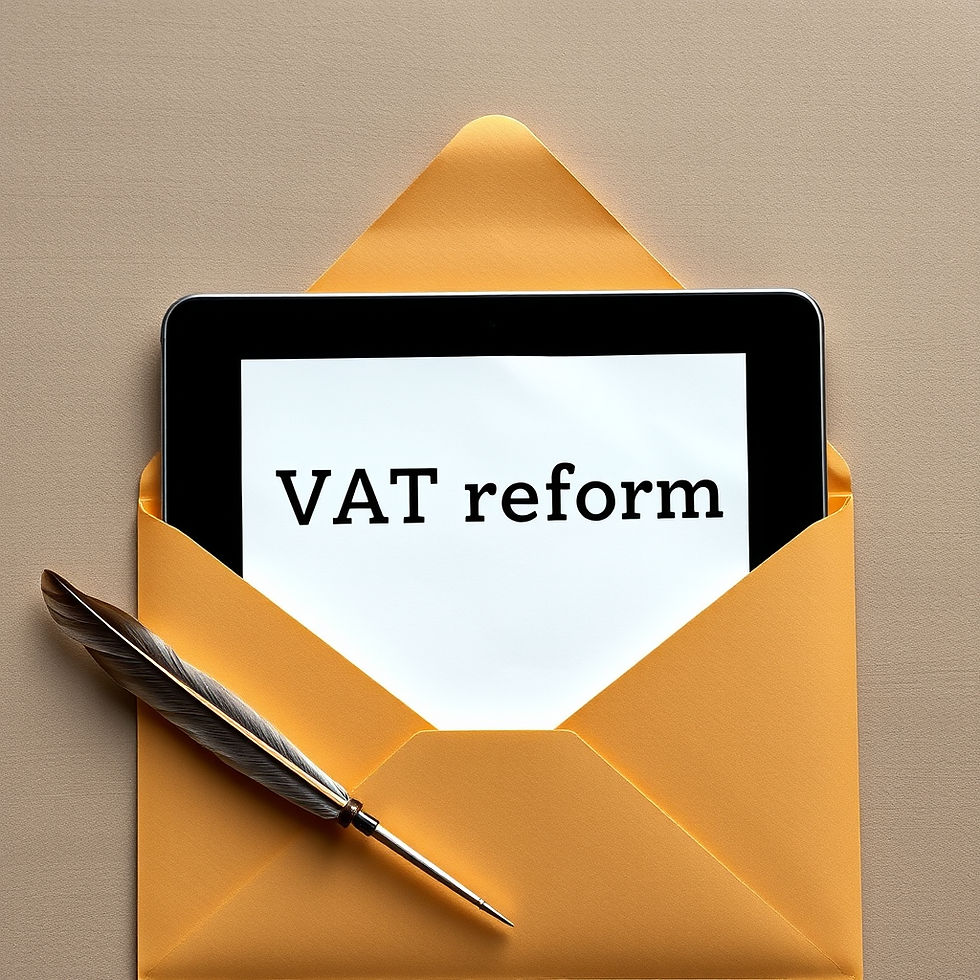Public Accounts Committee publishes its Report on Tax Evasion in the Retail Sector and is heavily critical of HMRC and Companies House
- Feb 12, 2025
- 4 min read
In 2015 RAVAS and VATfraud published The Billion Pound VAT Fraud a dossier that highlighted Chinese online retailers openly evading VAT on their online sales. HMRC's initial reaction was that the figure of £1 billion was an exaggeration and that only £300m a year in VAT was being lost. After years of pressure and campaigning by RAVAS and VATfraud, including direct representations made to The National Audit Office and the PAC, legislation was introduced in 2021 aka the 'deemed reseller' rules. These rules made Online Market Places (OMPs) the 'deemed reseller' for VAT purposes meaning that they had to collect the VAT and were liable for it. In the first year this change brought in £1.4 billion, a figure that has risen to £1.8 billion, which is over five times higher than HMRCs estimate. The initial RAVAS and VATfraud dossier was vindicated.
However the 2021 legislation introduced a loophole in that OMPs are only liable to collect VAT on sales made by businesses that do not met the test for establishment in the UK. This led to Chinese sellers (and others) setting up fraudulent shell companies and falsifying documents in the UK in order to appear to be established in the UK and thus avoid the collection of VAT by an OMP. Due to the complete lack of enforcement at Companies House and a similarly lax distribution of VAT registrations by HMRC, the UK has become a fraudsters paradise and in online retail it has been easy for determined fraudsters to evade VAT. In other words the problem is far from over. It continues due to the partial implementation of the deemed reseller rules and a total lack of effective regulation by Companies House and HMRC.
This abuse could be prevented simply by extending the collection of VAT by OMPs to all sellers - not just those established outside the UK. That would be the perfect solution because the collection of VAT by OMPs has already proven to be effective, it would be simple to extend the existing deemed reseller rules to all sellers (not just those established outside the UK) and it would immediately negate the need for ascertaining the establishment status of a seller and any subsequent litigation over VAT liability.
The PAC session that took place on the 16th of December was covered by a previous blog entry that you can find HERE. The committee's report, Tax Evasion in the Retail Sector, was published today and is signed off by PAC Chair Sir Geoffrey Clifton-Brown who observes “It is of deep concern that the many billions in tax rightfully meant for the public purse could just be the tip of the iceberg. Not only that, but our own tax authority has not been sufficiently curious with a view to accurately diagnosing the problem". RAVAS agrees with this conclusion. When it comes to VAT evasion and avoidance HMRC sees itself merely as an enforcer of rules made by others, indeed this is echoed in a letter from HMRC's departing CEO Sir Jim Harra, sent to RAVAS in February of 2020 "We do not accept that we must protect our customers from adverse economic conditions. This is the case even if Government economic policy has contributed to them" But as Sir Geoffrey Clifton-Brown notes "more must be done to clamp down on fraud and root out the bad actors who are taking advantage of loopholes in the current system. It is unfair on those who abide by the rules to be undercut by those that are evading their obligations".
The report highlights a number of concerns :
HMRC is not sufficiently curious about the true scale of tax evasion.
HMRC does not have a clear objective or strategy to tackle tax evasion despite significant lost revenue.
HMRC, Companies House and the Insolvency Service have failed to work collaboratively, missing opportunities to increase the tax take.
The planned reforms to the role of Companies House leave huge gaps and it is still too easy to register companies fraudulently.
HMRC's VAT registrations processes are far too open to abuse, and it is not exploring options to tighten controls sufficiently.
HMRC and the Insolvency Service are not tackling tax evaders or rogue directors sufficiently, particularly for phoenixism (closing a company and opening another one to avoid debt).
The Committee should be congratulated for an excellent summary of the problems that need to be addressed and the report also includes a number of sensible recommendations. I encourage anyone who is registered for VAT to read it.
One final observation; given that VAT evasion affects every business in the UK it is very surprising that the only written submissions made to the PAC were made by RAVAS and The Hair Dressing Council. The latter is concerned with VAT evasion on The High Street, thus RAVAS solely represented UK Online Retail, which is both flattering and depressing in equal measure. If you are a UK retailer or a trade body impacted by VAT fraud (which I would argue impacts every UK retailer, online or on the High Street) and you do not wish to make your views known publicly then please contact RAVAS and we will do it for you. The more support we get the faster these problems can be addressed.
Richard Allen - RAVAS




Comments